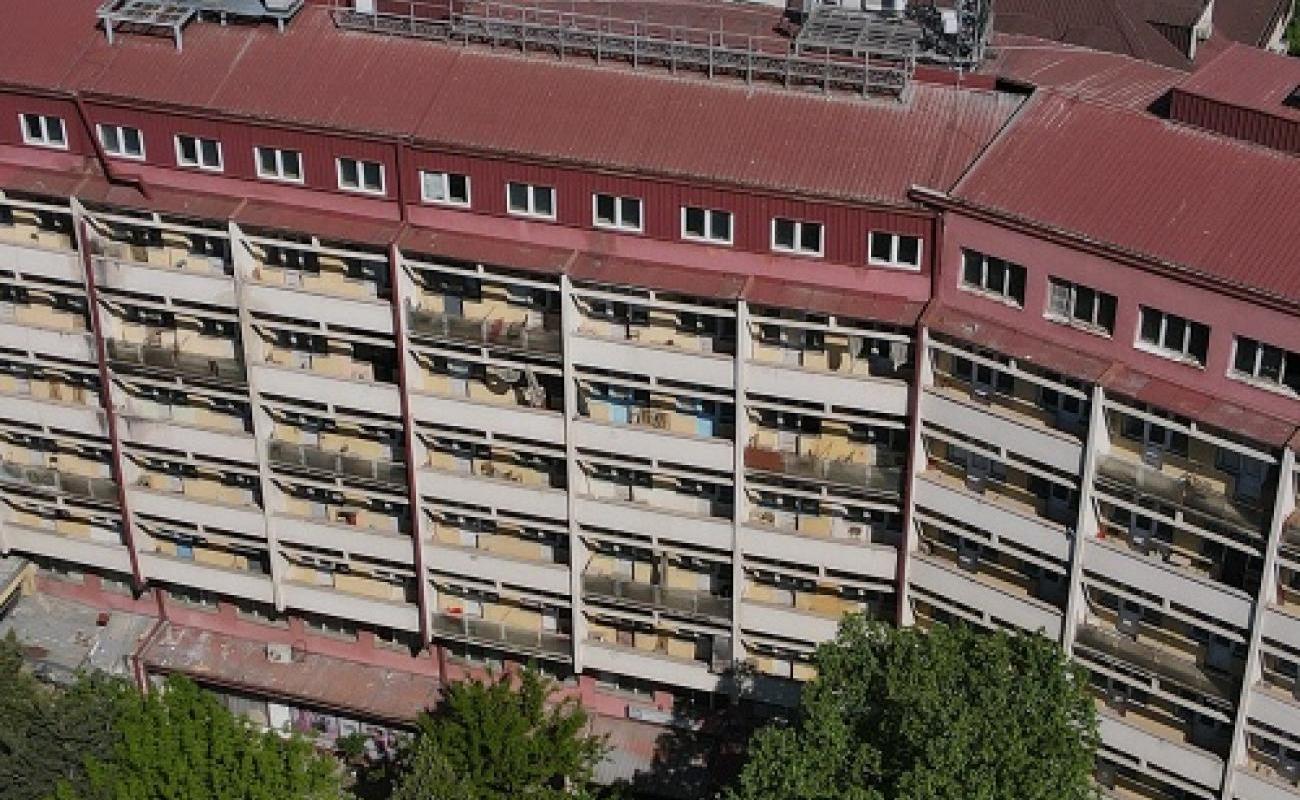Work starts on energy efficient rehabilitation of student dormitories in North Macedonia

Construction works have started on the “Kuzman Josifovski – Pitu” Dormitory in Skopje on 22 April 2024, as part of the Energy efficient rehabilitation of student dormitories in North Macedonia project.
This is one of the nine state-owned dormitories that have been identified for reconstruction under the EU’s Regional Energy Efficiency Programme (REEP) for refurbishing public buildings. Notably, four of these dormitories have the potential to be Nearly Zero Energy buildings (NZEB), contributing significantly to efforts to reduce CO2 emissions.
The programme is financed through a €4.8 million EU grant via the Western Balkans Investment Framework (WBIF) while KfW is providing €20 million loan. The Ministry of Education and Science of North Macedonia government is covering VAT costs and will implement the programme.
“The principle of the reconstruction is holistic, and it is not just to introduce energy efficiency. Other measures such as the renovation of sanitary installations, electrical equipment, safety measures, common study rooms, etc., will improve the living and learning environment for students. In addition, renewable energy solutions shall be applied where applicable. One of the crucial elements will be to influence different, more energy-savvy behaviour of students and employees,” Pablo Obrador, Head of Division for Energy and Mobility in Southeast Europe at KfW Development Bank said.
The project is expected to reduce energy demand by almost half and an estimated 2,400t in greenhouse gas emissions will be saved annually. In addition, 7,000 MWh of energy is expected to be saved yearly, the equivalent amount of energy needed to illuminate Champs-Elysees in Paris for a year and a half.
The Regional Energy Efficiency Programme tackles a key environmental issue in the Western Balkans, with approximately 80-90% of building stock in the region estimated as inefficient. Alongside other Western Balkans parties, North Macedonia has signed the Sofia Declaration on the Green Agenda, which commits to pursuing the target of a carbon-neutral continent by 2050, along with the rest of the EU.
---
A "Nearly Zero-Energy Building" has a very high energy performance. The nearly zero or very low amount of energy required should be covered to a very significant extent by energy from renewable sources, including by sources produced on-site or nearby. An "Energy Plus Building" produces more energy than it consumes, in annual average. To achieve the plus energy goals, it must on the one hand be built in a very energy efficient way , and on the other deploy renewable energy sources so that ultimately the primary energy demand per square meter and year is negative.
The NZEB concept is part of the WBIF project “Regional Energy Efficiency Programme for the Western Balkans (REEP Plus)”, supporting the state entities, cities and municipal companies to improve energy efficiency in public buildings, such as schools, hospitals or government buildings. Through the REEP component “Direct Finance to Public Buildings” KfW Development Bank on behalf of the German Federal Government has particularly focused on the highly efficient public buildings - NZEB or even Energy Plus buildings which form an indispensable building block on the way to carbon neutrality. KfW also promotes Energy Monitoring Systems in public buildings, supported by IT smart devices to detect inefficiencies and optimise the operations of a building.
REEP has been identified in the European Commission’s Economic and Investment Plan for the Western Balkans as Flagships within the “Renovation Wave”, which is part of the Investment window “Clean Energy”. These projects contribute significantly to the reduction of greenhouse gas emissions, and improve the living standards and health of citizens.
